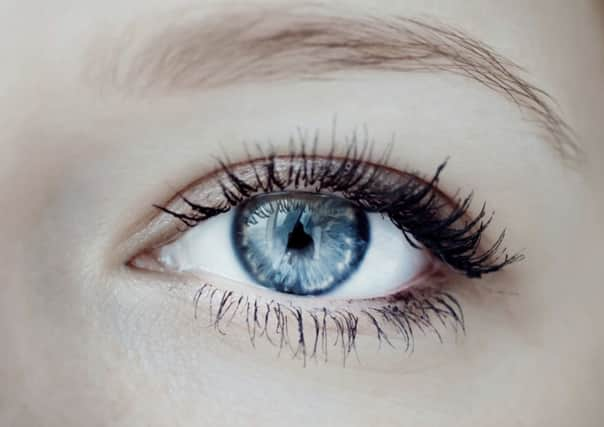Organ donors are urged to give gift of sight


Around one in ten donors on the NHS organ donor register say they are not willing to donate their eyes but experts insist that cornea donations are “vital” and help many patients restore their sight.
NHS Blood and Transplant (NHSBT) said there was a “national shortage” of corneas after the number of those donated fell by 2 per cent last year – the first decrease in seven years.
Advertisement
Hide AdAdvertisement
Hide AdCorneas can only be stored safely for a month so there are sustained efforts to maintain a supply for patients in need. During National Eye Week, NHSBT has called for more people to say whether or not they would be willing to donate their eyes in the event of their death.
The health body said while having a discussion about the prospect of donating eyes can be “squeamish” for some, it is important to let loved ones know of intent to donate.
Only around half of the families who consent to donating their loved one’s organs also agree to cornea donation, NHSBT said.
The cornea is the clear tissue at the front of the eye and transplants are needed to restore the sight of people affected by disease or injury.
NHSBT said that last year, cornea transplantation in the UK helped to restore or improve the sight of more than 3,500 blind or partially sighted people.
Kyle Bennett, tissue bank manager of NHS Blood and Transplant’s tissue services, said: “Each donor can potentially improve and enhance the lives of two people by giving them the gift of sight. We always need more families to say yes to donating their loved one’s eyes, as corneas can only be used for transplant for a month after donation.
“We want to highlight how important eye donation is and that it is often possible to donate eyes even if a loved one is not able to donate their organs after their death to help others.
“We often hear people say they’re squeamish at the thought of donating their eyes after their death. But we can reassure you that it is an amazing thing to do and can really transform lives.
Advertisement
Hide AdAdvertisement
Hide Ad“We also appreciate people often don’t want to contemplate death. But as we need corneas from people of all ages to provide the best matches for transplant, please take the time now to make a decision about donation and tell those closest to you what you want to happen.
“If you’re finding it hard to make a decision, perhaps think about whether you would want someone to donate their eyes if someone close to you needed a cornea transplant.
“We are hugely grateful to every family who has ever made the decision to donate organs or tissues as they have helped save and improve the lives of others.”
Arun Brahma, an ophthalmic surgeon at Manchester Royal Eye Hospital, said: “Corneal donations are vital to the work we do here at the hospital.
“They help to restore sight in those who have reduced visibility through cornea transplantation.
“Rarely, donations that are not suitable for corneal transplantation are still crucial, in helping us develop our research into other eye diseases and the treatment of conditions such as advanced glaucoma.”
To donate visit: www.organdonation.nhs.uk